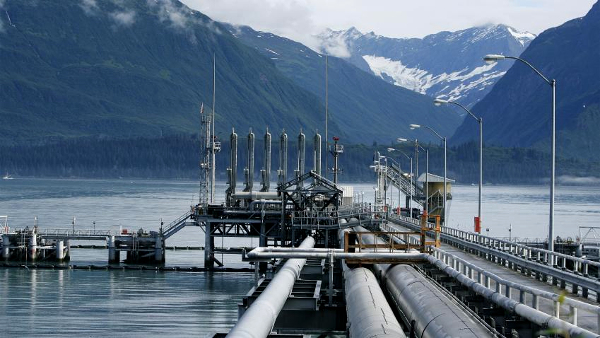A preliminary pact for a consortium of Indian companies led by ONGC Videsh Ltd. for acquiring about 49 percent stake in Russia’s Vankor cluster oilfields may be signed during the India-Russia Summit between Prime Minister Narendra Modi with Russian President Vladimir Putin this week.
Oil Minister Dharmendra Pradhan was in Moscow last week in preparation for the prime minister’s visit.
Modi will be the chief guest at this year’s Eastern Economic Forum in Vladivostok between Sept. 4 and 6 and would also meet the Russian President Vladimir Putin.
A host of agreements is expected to be signed during the visit and one of them could be on cooperation in oil and gas, sources with direct knowledge of the matter said.
This cooperation agreement may include Indian state-owned firms picking up 49 percent stake in Vankor cluster oilfields, they said.
Indian firms have been in dialogue with Russia since 2017 for a possible stake in the oilfields that will consolidate their presence in the energy-rich Arctic region.
Midway through the negotiations, Rosneft had offered to club five more fields in the same region to the three that were already on the table, the sources said.
Rosneft OAO, Russia’s national oil company that owns the fields, wants to retain a majority stake and is keen to sell only up to 49.9 percent stake.
India is keen on sourcing one million barrels per day of oil and oil-equivalent gas from Russia and had identified Sakhalin-3 in the Far East, Vankor in East Siberia, and Terbs and Titov oilfields in Timan Pechora region as fields for potential collaboration. But for Vankor, it has so far not been successful in its attempts.
ONGC Videsh already has 20 percent stake in Sakhalin-1 oil and gas field in Far East Russia, and in 2009 acquired Imperial Energy, which has fields in Siberia, for $2.1 billion.
Russia is wooing Indian investments in its Far East region ahead of Modi’s Vladivostok visit to balance China’s expanding presence in the resource-rich region.
OVL’s stake in Vankor cluster will be in proportion to 26 percent stake in had bought in the main Vankor oilfield. OIL-IOC-BPRL have 23.9 percent in the main Vankor field.
Vankorneft, a subsidiary of Rosneft, is developing the Vankor oil and gas condensate field, situated in the northern part of Eastern Siberia.
In 2013, Vankorneft was chosen as an operator on development of new fields of Vankor cluster—Suzunskoye, Tagulskoye and Lodochnoye fields, located close to the Vankor field. The reserves of Suzunskoye field exceed 56 million tonne of oil and condensate, and 35 billion cubic metres of gas.
In 2016, ONGC Videsh first acquired 15 percent stake in Russia’s second-biggest oilfield of Vankor for $1.268 billion and then bought another 11 per cent for $930 million. The 26 per cent stake would give OVL 7.31 million tonne of oil.
The consortium of OIL-IOC-BPRL acquired 23.9 percent stake in the field at a cost of $2.02 billion, giving them 6.56 million tonne of oil.
Rosneft continues to hold the remaining 50.1 percent shares of JSC Vankorneft. The field has recoverable reserves of 2.5 billion barrels.
Besides, the OIL-IOC-BPRL consortium has taken another 29.9 percent stake in a separate Taas-Yuryakh oilfield in East Siberia for $1.12 billion. The investments had taken the total outlay in Russia in that year to $5.46 billion.
These investments will give India 15.18 million tonne of oil equivalent. The investment made compares to $28.48 billion investment by Indian oil and gas companies overseas in the past 50 years, giving it about 10 million tonne of oil equivalent.
While Vankor produces about 442,000 barrels of oil per day (4 percent of Russian crude oil production), Taas currently produces about 21,000 barrels per day of oil.
Source: BB
Image Courtesy: Zee
You may also like
-
IAF Aircraft Set Course For Exercise Eastern Bridge VII At Oman
-
Trade Connect E-platform For Exports Is Single Window, Fast, Accessible And Transformational: Shri Piyush Goyal
-
India-us Working Together In Areas Like Critical Minerals, Supply Chains And Advanced Technologies: Shri Piyush Goyal
-
Dot Simplifies Approval Processes For Telecom Licenses And Wireless Equipment
-
Coal Production and Supply Trends on Positive Trajectory
